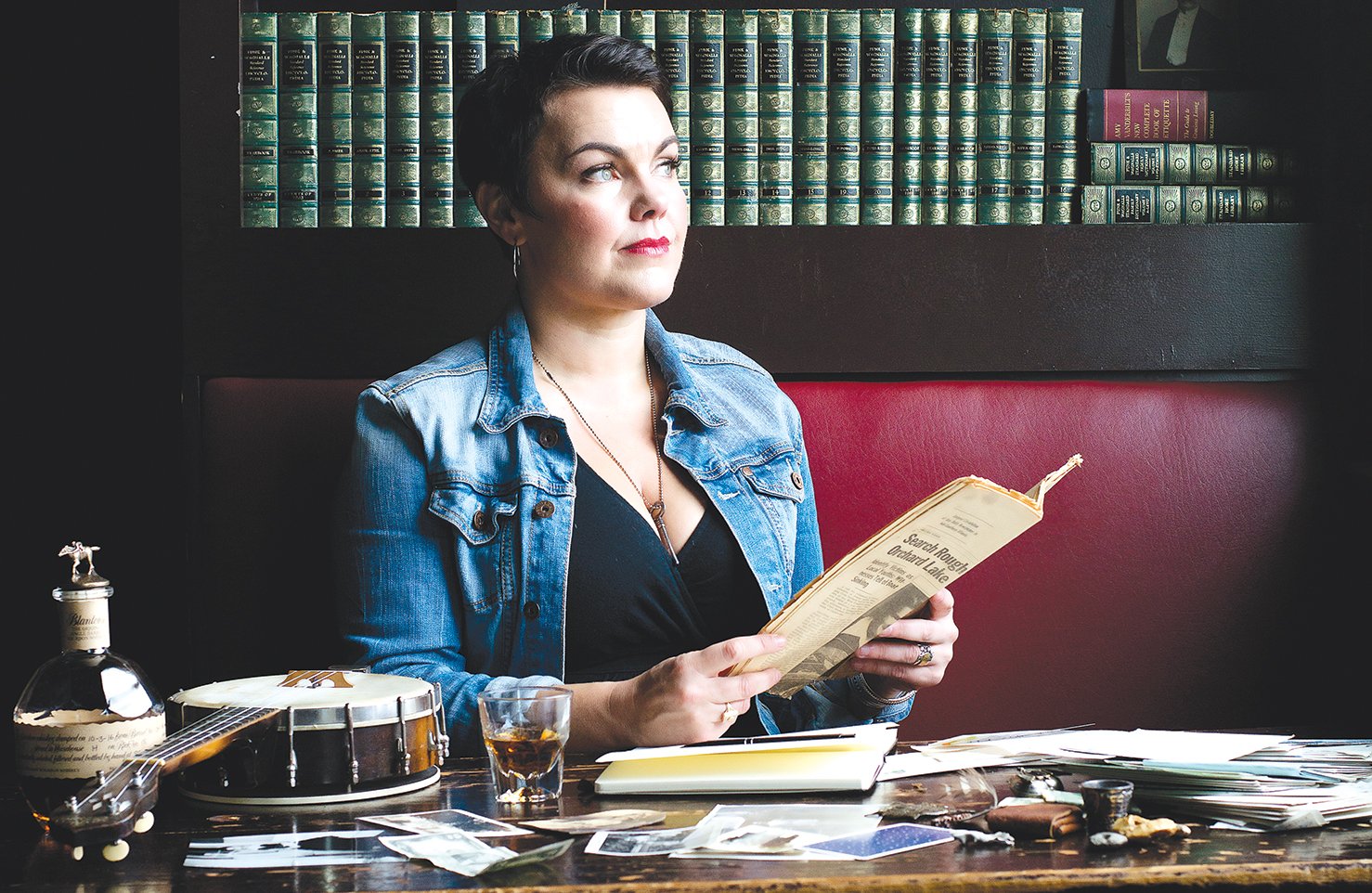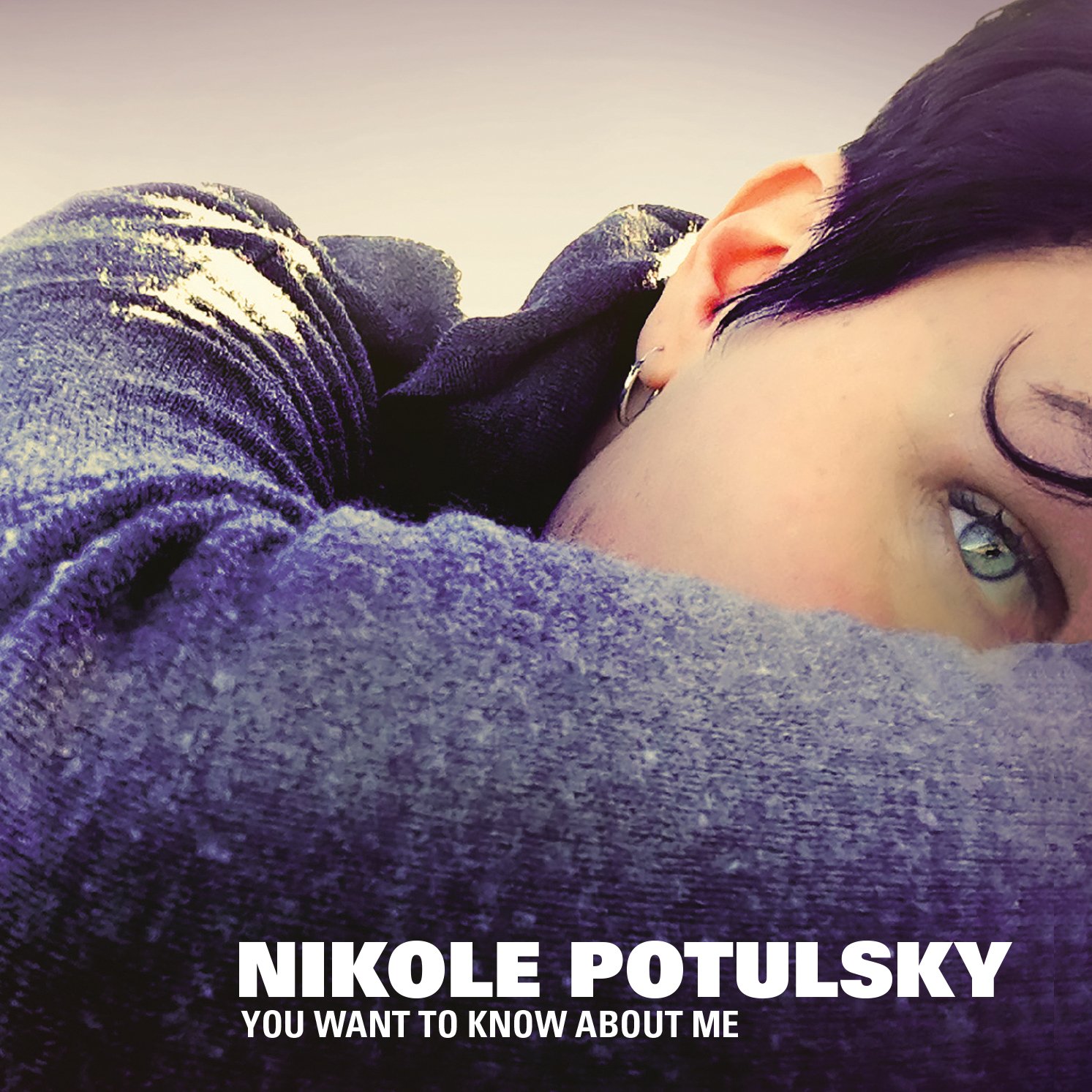Portland Writer and Musician Nikole Potulsky


Storyteller Nikole Potulsky bridges the gap between the songwriter and the essayist on her latest release, You Want to Know About Me. Her work as a lyricist recalls the same call to arms style of writing highlighted in her essays featured in The Los Angeles Review of Books and The Portland Mercury, and the essays accompanying her album contextualize her songwriting even deeper. In this way, Potulsky’s record feels like a mixed media experience as a reader and a listener that’s confidently delivered. That confidence makes You Want to Know About Me feel not only timeless as a folk record companioned with a collection of essays, but literary in its composition.
Eleven: Let’s start by discussing your approach to writing. How would you describe yourself as a writer coming from a musical background?
Nikole Potulsky: I think of myself as a storyteller. I think of myself as a writer of stories, not just a writer of music, and not just a writer of essays. At the end of the day, I feel like I have stories to tell that are about my own life and experiences that help me process who I am, where I’ve been, and to understand my place in the world. It’s self-soothing in many ways. But when I sit down to write a song, it’s usually about the moment I am in that day while in the process of what I’m writing about. When I sit down to write an essay, I am reflecting on the process that I was in with the story I am writing.
11: How do you tell your stories beyond the page?
NP: With music I’ll sit down and start tapping my hand on the table, and I’ll start humming a tune, and I’ll start singing some words, and I’ll hit record to capture the moment. Then I’ll get my guitar out and put chords to the lyrics, and it’s usually about one or two things. Either I am going through something, and I need to process it in a way that isn’t just words, or the music moves the story through me.
I wrote the title track on my album, “You Want to Know About Me”, about my great aunt, who told me a story about her mother who is a psychic. So I sat down to write that song, and what ended up coming out was the ways I’ve been projected upon by other people, and how much I dislike that. I write to understand who I am. I write to understand the people who I come from. And to just be who I am. If I did have one point, it’s to be as human as we possibility can. To not turn ourselves into products. To not turn ourselves into machines.
11: You wrote a series of essays that accompany your debut album. Can you talk about your Notes to Self essays that you wrote alongside each song?
NP: The songs came first, and the essays came second. The thing I notice about writing in first person, second person, or third person are the different voices we have. In my own journal writing, I learned early on to look inside myself for my own encouragement. In my journals, which date back to Junior High, I Would write “Dear Nikole, don’t forget that you are powerful, and you can make things happen. Love, Nikole.” I did this over and over again. So, in producing my album, I went back to mine information from what I was saying when I wrote those songs, and what the environment was like when I produced those words. I just sort of borrowed that voice from my journals from 12, 13, 14 years ago, and I sat down to write those essays with the songs.
11: Power is a consistent theme in this body of work. How is power approached here?
NP: What I write about is power, where we are powerless, and where we find our power inside of our powerlessness. So, it would be easy to say, the years of the local bookstore are over. Move on. But that isn’t true. There are places we have power in our lives. One of those places is where we spend our money, but that’s just one power. We have multiple places of power. One of the places I write about the most are the places we lose power. The places we search for it, how we get it back, where we give it away, and how we work together to have power together. It’s kind of how I orient my life in general. That is what I am singing about, it’s what I write about, and it’s what I work on for people to do.
11: How are those essays processed differently from their musical components?
NP: The little bit of distance in writing allowed me to step back and watch the story unfold, as opposed to being in the story. So some of the Notes to Self-style of writing are almost like a time travel device where I can look back at myself from that time. In a lot of ways those are like a memoir for me. They are kind of like a journey of self-discovery that shows me the different things that happened in my life. But they are also about the grief that happens in our lives, and they tell us about who we are through the stories of where we come from.
11: Is there a specific song from that body of work that you feel communicates better in either format?
NP: One of the songs on my album is called “Get Out,” which is about a time from when I was trapped in a house fire when I was a kid. When I sat down to write about that house fire, which I do all of the time, I hadn’t shared an essay about that experience because it is so personal, and so informative about who I am in so many ways. It feels impossible to write about it in a concise essay.

11: How would you describe your approach to writing narratively driven lyrics?
NP: There are some narrative driven songs, but there are also some songs that are emotionally driven where I am just trying to tell you how I am feeling about something. I wrote those songs for myself, so I don’t have a clear target of what I am trying to get at. I really do just sort of open myself to the moment, and I just let the words work through me, and I try to capture them as they are coming. I don’t set out with a specific agenda where I say, “I want to write a song about this moment” most of the time. There are some songs that drive a narrative forward. For example, there is a song on my album called “Rumble Seat,” which is about an ancestor who learned to read tarot cards. That song has a specific beginning, middle, and an end, where I am driving to the point where the train hits the car, and she becomes a fortune teller herself. In a lot of ways it’s more about just getting to a place.
11: John Prine once said, “I’m not writing poetry, I’m writing lyrics.” How would you differentiate lyricism and poetry as a folk musician who is also a writer?
NP: I don’t think of myself as a poet, but I do know many writers who think of lyricists as poets. There is rhythm, there’s meter, there’s rhyme—there’s a lot of crossover between the two. But music and lyrics are multi-dimensional, and when you read poetry on the page it is a voice. Whereas lyrics are made alive by instrumentation, and notes, so even if it’s sung acapella, it’s brought to life in a different way. Not that one is better than the other, but they are experienced very differently.
11: How does your work as an essayist inform your work as a songwriter?
NP: Honestly, they both fuel each other. The songs I write have discernible stories that are attached to them. There are some songs that people write that are really more of an emotional landscape. Like if you listen to it you might not know what the writer is referencing, but in most of my songs, you do. You can follow a narrative. Sometimes I write an essay, then I’ll sit down and start strumming the guitar, and the lyrics arrive soon after. But usually the song isn’t directly pulled from the essay. Honestly, a song is a faster transportation device if you want to write about place. People tell me that all of the time when they hear my songs. Similarly with my essays, people will tell me, “I was right there. I was with you.”
11: Is there a separation between your life as a musician and your life as an essayist?
NP: No. Absolutely not. I think of myself as a storyteller, and one of the vehicles for my stories is music, and another vehicle is my writing. Another one is public speaking, and engagement. I use my stories to encourage people to take political action, and to encourage people to broaden their understanding of who lives in their community, and building those communities through my art. So there are many ways that I’ve used my stories, but they act mutually. »



